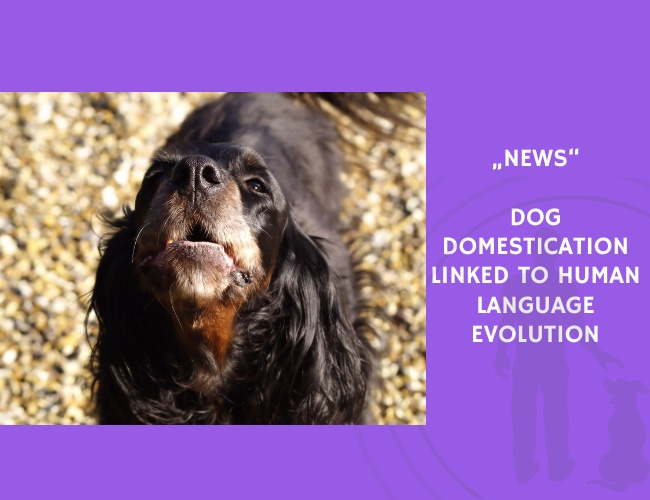Language evolution in humans is shaped by multiple biological and cultural factors, but one intriguing hypothesis is that domestication processes—both in humans and dogs—played a synergistic role. In this review, Benítez‐Burraco et al. (2020) explore how dog–human interactions may have influenced aggression regulation and cooperative tendencies, contributing to human self-domestication and, ultimately, linguistic complexity.
The authors argue that reduced aggression and increased prosocial behavior are hallmarks of self-domestication in humans. These traits align with those fostered through the domestication of dogs, who co-evolved alongside humans as cooperative partners in hunting, guarding, and companionship. This mutual domestication likely created a feedback loop, reinforcing sociability and tolerance in both species.
Evidence is drawn from ethology, archaeology, genetics, and physiology. For instance, archaeological records show early domesticated dogs living in close association with humans, while genetic studies suggest convergent evolution in pathways regulating stress and aggression. Physiological parallels, such as reduced reactive aggression in both species, further support the hypothesis.
The review proposes that this feedback loop may have indirectly fostered the development of structural complexity in human languages. By promoting greater cooperation, trust, and social bonding, dog–human co-domestication could have provided the social scaffolding necessary for the emergence and stabilization of more sophisticated linguistic systems.
This theoretical framework bridges animal domestication, human evolution, and linguistics, highlighting how interspecies relationships may have shaped not only behavior but also one of the most defining features of humanity—our capacity for language.
Source: Benítez‐Burraco, A., Pörtl, D., & Jung, C. (2020). A Feedback Loop Between Human Self-Domestication and Dog Domestication Contributing to Language Evolution? Publication Date: March 15, 2020. References: 214.










